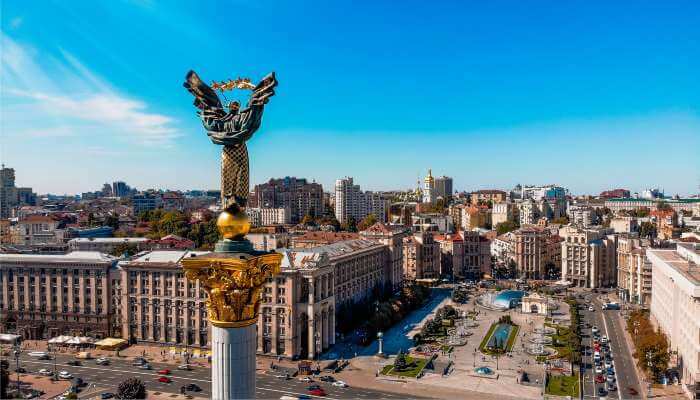February 24 marks one year since the Russian army invaded Ukraine along multiple fronts.
While the fog of war makes it difficult to know exact numbers, it is estimated that more than 30,000 Ukrainian civilians—mostly women, children and the elderly—have been killed, mostly due to Russia’s bombing campaign that continues to rain terror across the entire nation. (The real number is likely much higher.) On the battlefield, as many as 200,000 Russian soldiers have been killed or wounded, and as many as 120,000 Ukrainian fighters. Only God knows the true numbers.
Such statistics, however, cannot begin to calculate the grim toll the war has taken. More than 18 million Ukrainians have fled the country since the first bombs dropped last winter (while 10 million have since returned). The war has shuffled national alliances, shaken stock markets, starved Europe of oil and gas and exacerbated food shortages in poverty-stricken parts of Africa. Within Ukraine, more than 1,000 schools have been destroyed while more than 40% of the nation’s power grid has been damaged.
This week the war in Ukraine has once again risen to the top of the news cycle—with President Biden’s visit to Kyiv, Putin’s defiant speech to the Russian people, and the one-year mark of Russia’s invasion. As such, the war is on the minds of many Christians. And so it begs the question: What would God have us do about a war taking place halfway around the world?
To help answer that question I turned to Valentyn Korenevych, professor at Irpin Seminary (just outside Kyiv), pastor at Way of Truth Church and president of Olive Branch Ukraine, one of the nation’s largest war chaplain ministries. Korenevych is not only on the ground as events unfold in Ukraine, but he’s arguably one of the few Christians who has served as an officer in both the Soviet Army (1981-1991), and then after the fall of the USSR, the Ukrainian military (during which time he and his wife, Marina, became Christians).
Korenevych sees a stark difference between what he describes as a unified spirit present throughout Ukraine compared to what is happening in Russia. His 10 years as a logistics officer in the Soviet Army gives him rare insight into the structure and mindset of Russia’s invasion in Ukraine.
“The Soviet Army and the Russian Army are the same. It is the same spirit today that drove communism 30 years ago,” he says. “There are thousands of officers in the Russian Army today who are just like I used to be. It is not a godly structure.”
As a leader of scores of war chaplains serving Ukraine’s fighting men and women, Korenevych has seen Jesus show up in the frontline trenches. “Many soldiers will ask a chaplain to just sit with them during their night watch,” the colonel adds. “Everywhere we go along the frontlines of Ukraine the men and women soldiers say that there is this unique, unifying spirit that they can’t explain. We can then say that what they are sensing are the prayers of believers in Ukraine and around the world.”
“I think God wants to achieve several goals through this war,” he adds. “The first is to motivate His people to pray and to prepare for the Second Coming of Christ. We live in a time when the antichrist will come from one side, and God is preparing us for this. But from the other side, God prepares something opposite. God’s other goal in this war is destroy the antichrist spirit in Moscow and even in Ukraine, where many people still have a Soviet world mentality,” he says.
While Korenevych is quick to point out that God loves the Russian people, he encourages Americans to be aware of the oppressive spirit animating many in the Kremlin. He adds that we must pray to “destroy satanic narratives in people’s minds.”
As we reach the one-year mark of the largest and most devastating land war in 80 years, let us pray that the peace of Jerusalem would descend upon Ukraine. Korenevych adds, “That is my prayer during these difficult days of war, and for whatever comes after.”
Kyle Duncan is former vice president of Content and Acquisitions at Charisma House. He writes full-time from his home in San Diego, and his book Hope for Ukraine released last September (BPG/Chosen). Kyle and his wife, Suzanne, have an adopted son, Jhenya, from Mariupol, Ukraine, and three biological daughters.












